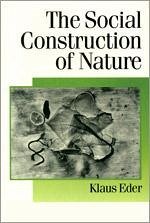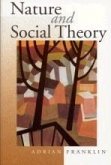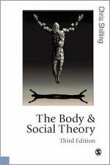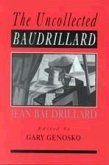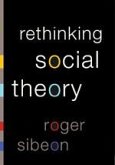In this unique and agenda-setting examination of the relation between nature and culture, Klaus Eder demonstrates our ideas of nature are culturally determined, and explains how the relation between modern, industrial societies and nature is increasingly violent and destructive. Through an analysis of symbolism, ritual and taboo, Eder questions the view of nature as an object. Showing how nature is socially constructed, he presents a critique of Marx and Durkheim while offering a radical reinterpretation of the relationship among society, culture and nature. Eder concludes with an examination of the symbolic order of society and of the role of religion in modern culture. Using a culturalist interpretation, he explains how environmentalism, and the social construction of nature, is a key index of social order and structure.
`Klaus Eder affords us with a rare, genuinely social consructionist perspective on nature. He must be credited, and his book praised, on numerous grounds. First and foremost, he retrieves, develops and introduces to a German and Anglo-Saxon readership what is probably to this day the most comprehensive and thoroughly social constructionist framework to apprehend human/nature relationships. The author also provides a sound account of food taboos across different cultures, including our own, thereby acting as a precursor to what is known as `symmetrical anthropology' This book is an important contribution to the social sciences in general' - British Journal of Sociology
`The Social Construction of Nature argues that modernity's characteristic pride in dominating nature has caused us to forget that we live in a culture which forces us into a self-destructive relationship with nature. The author shows how this is reflected in our eating practices: carnivorous culture is seen as an extension of domination going back to Greek roots, while the emerging vegetarian culture is based on the idea of harmony with nature. In this context the opposite of the natural foods movements is the industrial exploitation of nature. The final part claims that contemporary environmentalism is a turning point in the cultural evolution of modernity' - Scientific and Medical Network Journal
`The Social Construction of Nature argues that modernity's characteristic pride in dominating nature has caused us to forget that we live in a culture which forces us into a self-destructive relationship with nature. The author shows how this is reflected in our eating practices: carnivorous culture is seen as an extension of domination going back to Greek roots, while the emerging vegetarian culture is based on the idea of harmony with nature. In this context the opposite of the natural foods movements is the industrial exploitation of nature. The final part claims that contemporary environmentalism is a turning point in the cultural evolution of modernity' - Scientific and Medical Network Journal

